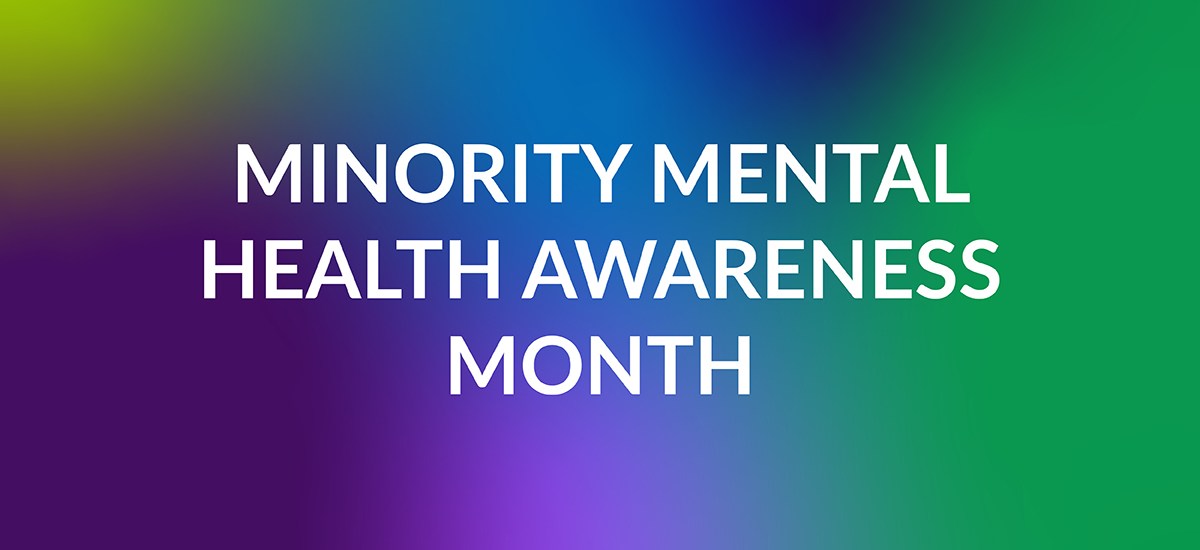 Minority Mental Health Awareness Month Spotlight: Insights on Inclusive and Equitable Care from DBH Students, Faculty, and Subject Matter Experts
Minority Mental Health Awareness Month Spotlight: Insights on Inclusive and Equitable Care from DBH Students, Faculty, and Subject Matter Experts
July 9, 2024
July is Bebe Moore Campbell National Minority Mental Health Awareness Month, a month dedicated to growing public awareness of mental health topics among communities of Black, Indigenous and people of color. Bebe Moore Campbell was an American author, journalist, teacher, and mental health advocate who worked tirelessly to shed light on the mental health needs of the Black community and other underrepresented communities. This month serves as a reminder that it’s critical to consider the unique mental health factors impacting historically marginalized and underserved racial and ethnic groups year round.
To continue the visionary work of Bebe Moore Campbell, mental health and healthcare organizations, including Cummings Graduate Institute for Behavioral Health Studies, encourage you to explore and share educational resources and information addressing the mental health needs of Black, Indigenous, and People of Color. Below is a selection of recommended articles, resources, and podcast episodes from the CGI archive for Minority Mental Health Awareness Month.
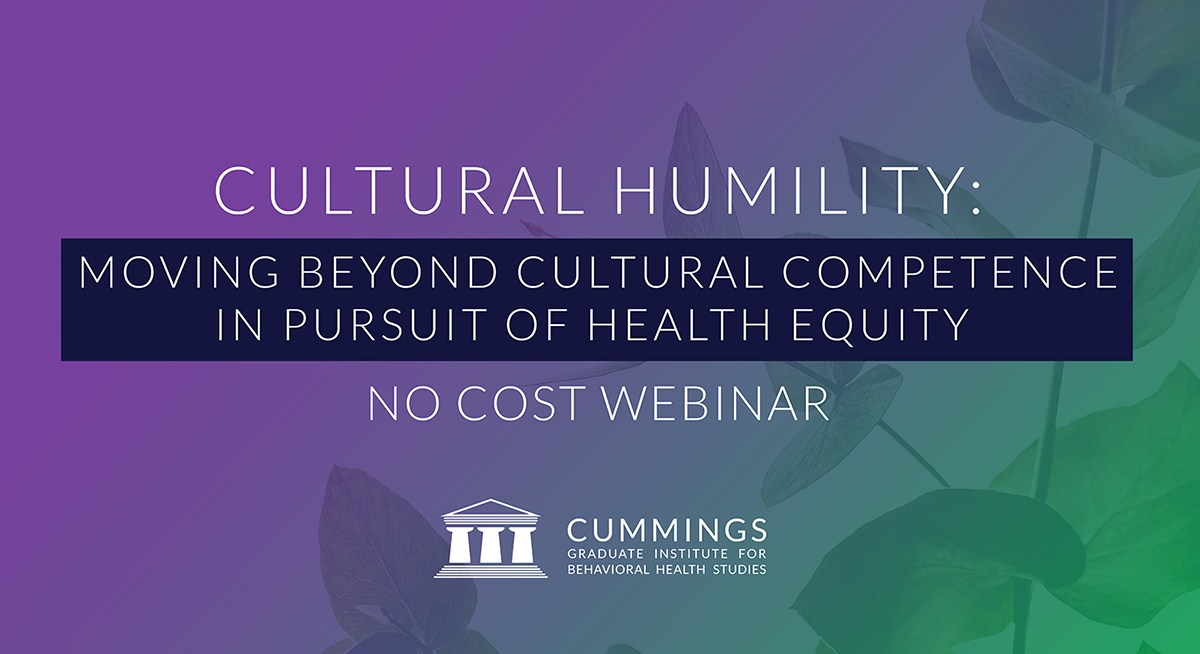 Cultural Humility: Moving Beyond Cultural Competence in Pursuit of Health Equity Webinar
Cultural Humility: Moving Beyond Cultural Competence in Pursuit of Health Equity Webinar
Cummings Graduate Institute for Behavioral Health Studies (CGI) proudly offers the Cultural Humility: Moving Beyond Cultural Competence in Pursuit of Health Equity webinar at no cost to mental health providers, supervisors, and directors, designed and facilitated by Rebeca Allen, MN, RN. In this webinar we will reveal practical steps to reduce biases that can be implemented in everyday encounters with patients as we continue to strive for health equity. This webinar is available at no-cost, online, on-demand training courses.
Learn more: Cultural Humility: Moving Beyond Cultural Competence in Pursuit of Health Equity
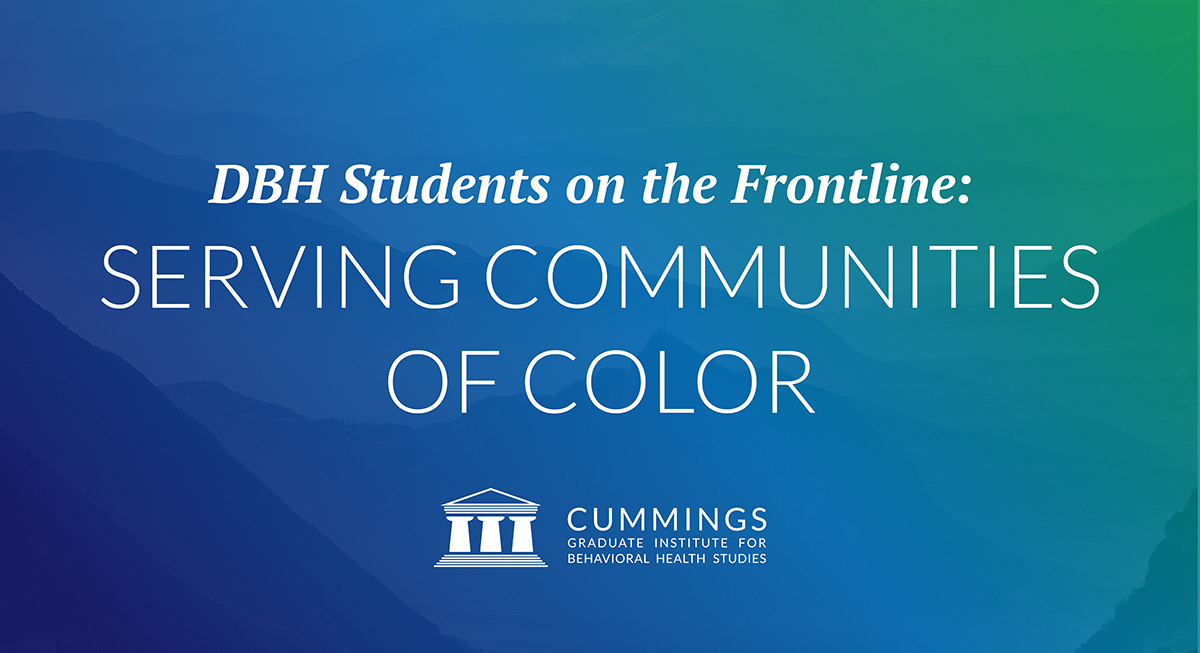 DBH Students on the Frontline: Serving Communities of Color
DBH Students on the Frontline: Serving Communities of Color
In this episode of Disruptors at Work: and Integrated Care Podcast, host Dr. U. Grant Baldwin, Jr., DBH, Assistant Director of Academic Programs at CGI, is joined by six Doctor of Behavioral Health (DBH) students, all of whom are accomplished clinicians of color working in the fields of integrated healthcare and healthcare innovation.
Learn more: DBH Students on the Frontline: Serving Communities of Color
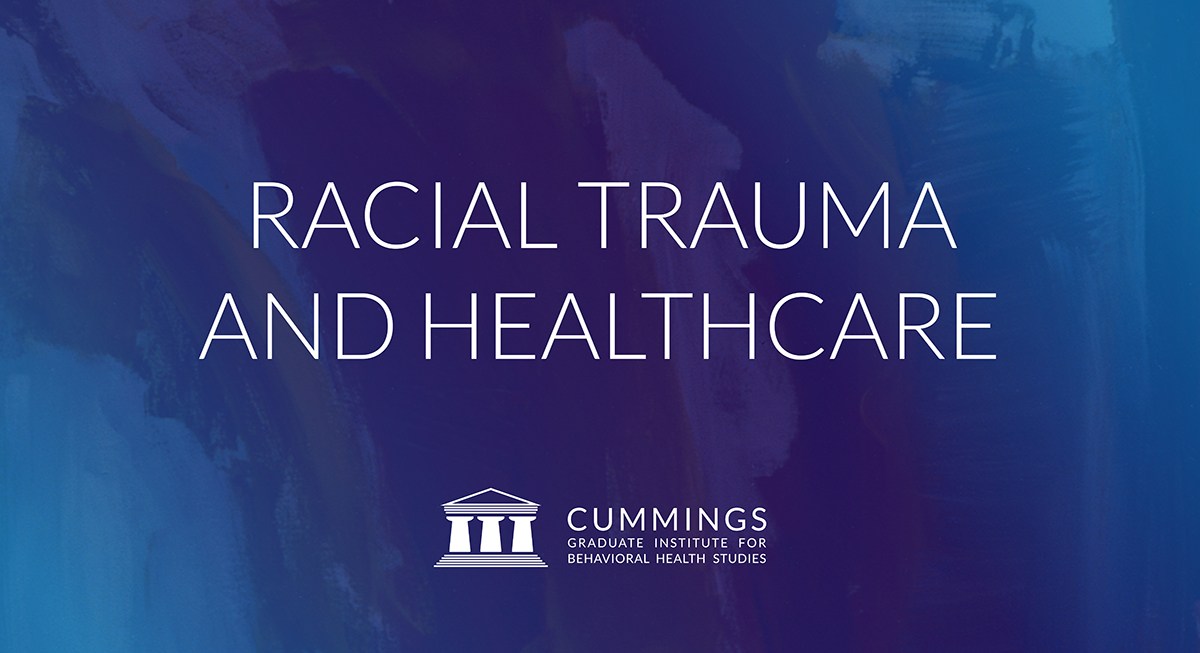 Racial Trauma and Healthcare
Racial Trauma and Healthcare
In this episode, our host, Dr. U. Grant Baldwin, Jr., DBH, and Ashley McGirt, MSW, LICSW, explore the intersection of racial trauma and healthcare, examining its impact on providers and patients while discussing strategies to address burnout and systemic disparities. Discover effective methods for measuring racial trauma and the role of integrative healthcare approaches in fostering inclusivity, alongside the importance of ongoing cultural competence training and advocacy efforts for creating a more equitable future in healthcare.
Learn more: Racial Trauma and Healthcare
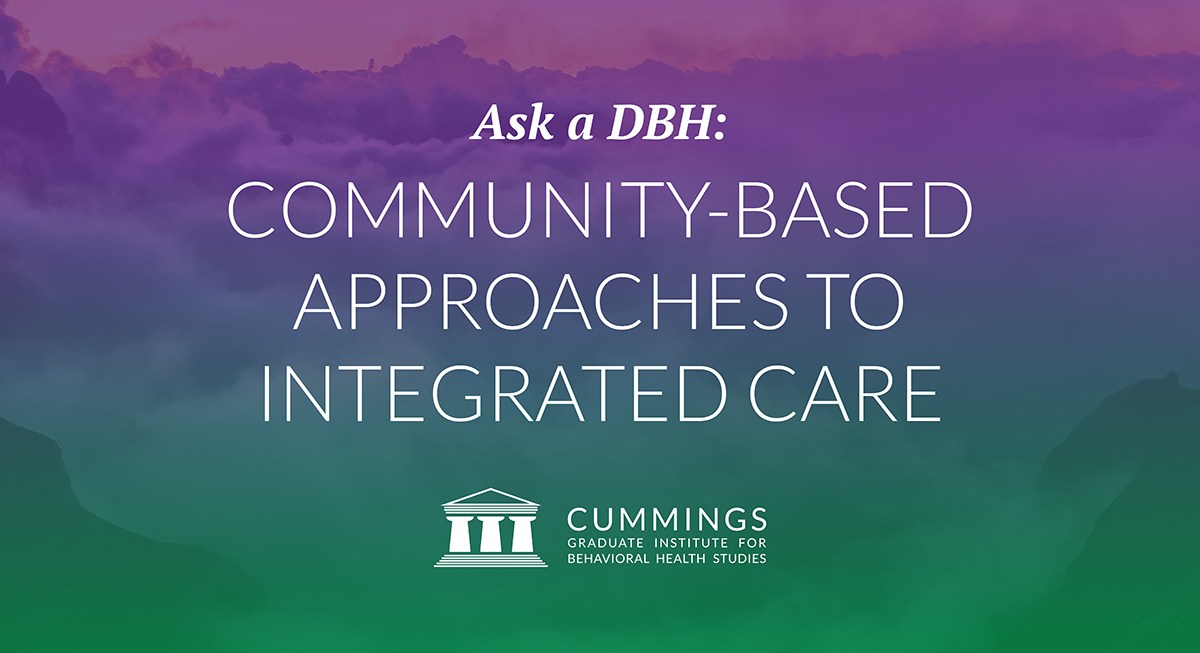 Community-Based Approaches to Integrated Care
Community-Based Approaches to Integrated Care
In this special episode of Disruptors at Work: an Integrated Care Podcast, host Dr. U. Grant Baldwin, Jr., DBH and guest, Kenny Martín-Ocasio, MS, CCWLS, explore how community-based behavioral health organizations use integrated care models, how integrating behavioral health care impacts primary health services, and examines how integrated care efforts have enhanced access to care and improved the lives of patients.
Learn more: Community-Based Approaches to Integrated Care
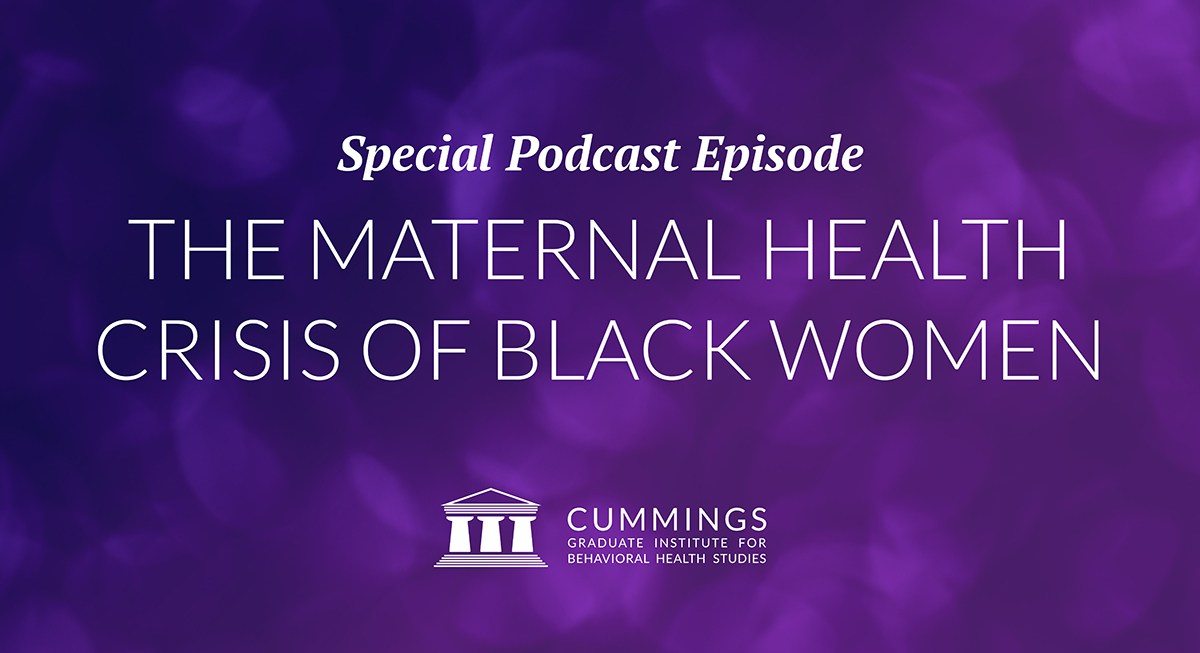 The Maternal Health Crisis of Black Women
The Maternal Health Crisis of Black Women
In this special episode of Disruptors at Work: an Integrated Care Podcast, host Dr. Cara English, DBH, explores the maternal health crisis affecting Black women with Erica Glaze, MPH, MCHES, CCCE and Rochelle Trotman-Norman, MPS, ATR, PMH-C. This discussion focuses on the startling disparities, systemic challenges, and potential solutions to ensure safer pregnancies and births for Black mothers.
Learn more: The Maternal Health Crisis of Black Women
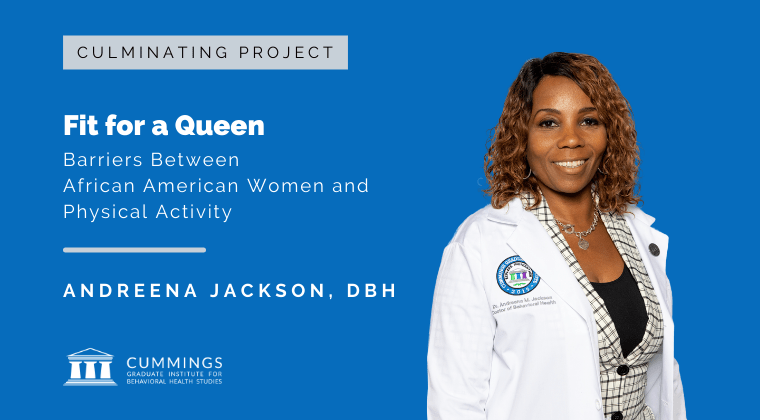 Fit for a Queen: Barriers between African American Women and Physical Activity Webinar
Fit for a Queen: Barriers between African American Women and Physical Activity Webinar
This no-cost, on-demand webinar presents the results of Dr. Andreena Jackson’s DBH Culminating Project, which addressed the factors that contribute to physical inactivity in African American women.
Learn more: Fit for a Queen: Barriers between African American Women and Physical Activity
Join the conversation on social media with the hashtag #MMHAM.






























